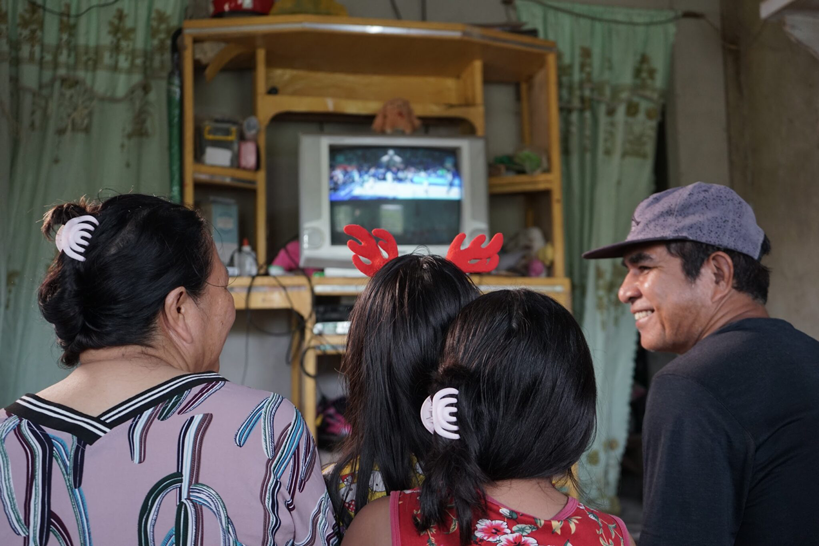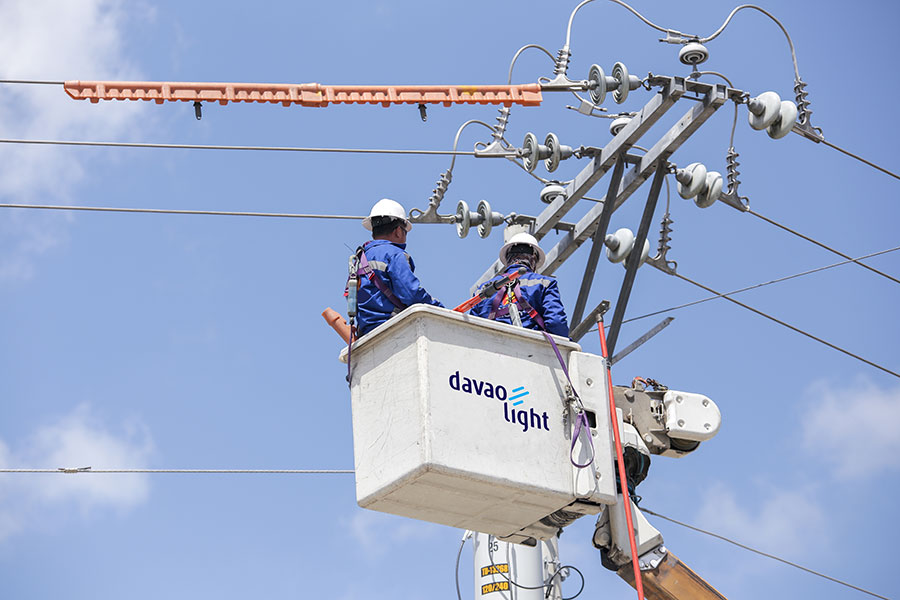At the flick of a light switch and upon the connection of a plug, electricity is expected to be there.
Otherwise, unreliability would mean stunted growth and weaker development all around. For far-flung areas in the Philippines — especially those outside the National Capital Region — energy security remains a developmental goal.
A study from the Philippine Institute for Development Studies said that for every five hours of power outage, the Philippines is inflicted with an economic loss of about P556-million. At the local level, the damage is not just to residents and local businesses but also to local government revenues and the essential services and development projects it supports.
Without the crucial input of stable and reliable electricity to business, government, school, and household activities, the quality of life of the residents and local competitiveness suffer.
Amidst the ongoing shift to a cleaner, albeit more variable power grid, Aboitiz Power Corporation (AboitizPower) believes that an “all-options-on-the-table” approach to power generation and delivery can balance supply and demand while decarbonizing the entire system at a Filipino-friendly pace.
Upper middle-income country
In numbers, upper middle-income status is accorded to a country with a gross national income (GNI) per capita of $4,516 to $14,005. Since 1987, the Philippines remained a lower middle-income country, recently recording a GNI per capita of $4,230 in 2023.
The government has set economic growth assumptions of 6-7% in 2024, 6.5-7.5% in 2025, and 6.5-8% from 2026 to 2028. Analysts have opined that the economy would have to hit those assumptions for the Philippines to upgrade and become an upper middle-income country within the same span.
But in reality and on the ground, what should “upper middle-income” look like?
As articulated by Filipinos themselves, they want a “Matatag, Maginhawa at Panatag na Buhay” (Stable, Comfortable and Secure Life), representing their collective long-term vision by the year 2040.
Filipinos aspire for a society where no one is poor or hungry, with their families living in comfortable homes with the desired amenities. They also want a country where their children can have quality education, decent jobs, and opportunities to enable them to be productive members of society. Overall, there is good health and well-being; resilient cities and communities; healthier ecosystems; and public institutions that can be relied on.
Among the foundations that can spur and sustain the realization of these targets and ambitions — both nominal and real — is electricity, most especially one that is sufficiently abundant and can be reliably and affordably accessed. After all, having electricity is a precondition for economic activity, public services, and modern education, among other human needs. Without energy security, the lives of Filipinos would not be stable, comfortable nor secure.
The electric power industry is dealing with a moving target. From 2022 to 2050, the Department of Energy projects an average annual growth rate of 5.19% in peak electricity demand and 5.49% in electricity sales nationwide; 2050 figures being more than quadruple the 2022 figures.
Moreover, more than two million Filipino households remain without electricity.
In any case, all demand must be met as supply chains, offices, schools, hospitals, infrastructures, and households all require sufficient access to electricity to effectively perform their functions.
An “all-options-on-the-table” approach
The Philippine government targets to increase the share of renewable energy in the nation's power generation mix from 22% in 2023 to 35% by 2030, 50% by 2040, and more than 50% by 2050, mostly led by private investments in wind and solar projects.
But this would not be enough to meet the demand numbers consistently, especially considering the intermittency of wind and solar as energy sources. Even if renewables paired with energy storage systems were deployed to address the variability, it is still quite uncompetitive today relative to nonrenewables.
The installed capacity of variable renewable energy is also not at par with the quantity and quality of dispatchable energy from traditional sources. For context, taking into account the capacity utilization factor, it would take a solar facility with a rated capacity of 400 megawatts to generate the same amount of electricity as a 100-megawatt coal plant. Even then, a battery or some form of energy storage system would have to be added for it to be reliably dispatchable.
With scaling solar, there is also a concern on the potential aggregate land footprint of industrial solar facilities, which tends to compete for space with agriculture and food production.
To mitigate the risks inherent in each source and to account for the country’s capability to shoulder what it can, AboitizPower believes that the Philippines should pursue an “all-options-on-the-table” approach to energy security, which involves maximizing existing dispatchable power sources like coal; expanding long-distance electric transmission; exploring emerging technologies, energy storage systems, and indigenous sources; and developing natural gas to provide peak power.
Amidst the influx of more renewable sources of energy into the Philippine grid, bridge technologies like liquified natural gas (LNG) are necessary, potentially giving more time for cleaner and better technologies to further develop or be more commercially viable.
Without new greenfield coal projects and the depletion of the country’s sole indigenous gas field, LNG can offer high capacity, less carbon intensity, and flexibility in power generation that can complement the intermittencies of solar and wind power.
Forwarding its belief into practice, AboitizPower operates thermal power plants that support the country’s baseload and peak energy demands, and manages the country’s largest renewable energy portfolio, based on installed capacity under its operational control.
It continues to expand its generation portfolio, having over 1,000 megawatts of disclosed energy projects in solar, hydro, geothermal, wind, and energy storage systems en route to building 3,700 megawatts of new clean capacity. Through its stake in Chromite Gas Holdings, AboitizPower also plans to invest in two gas power plants and an LNG import and regasification terminal.
There is no silver bullet to any energy transition. No single type of energy source can plug all the challenges in the electrical power industry. In the Philippines, it must be a team effort among all generation technologies to meet demand, while gradually transitioning to a cleaner power system with respect to the country’s context and capabilities.



